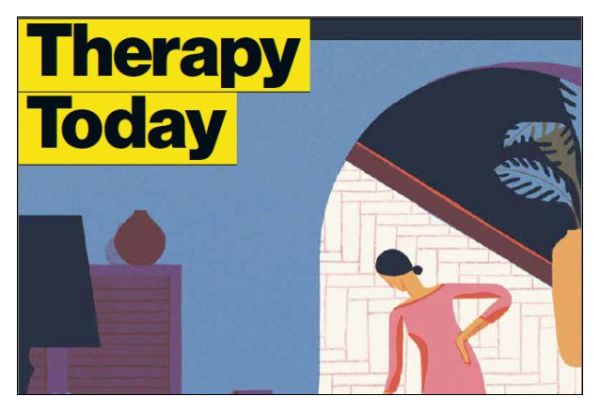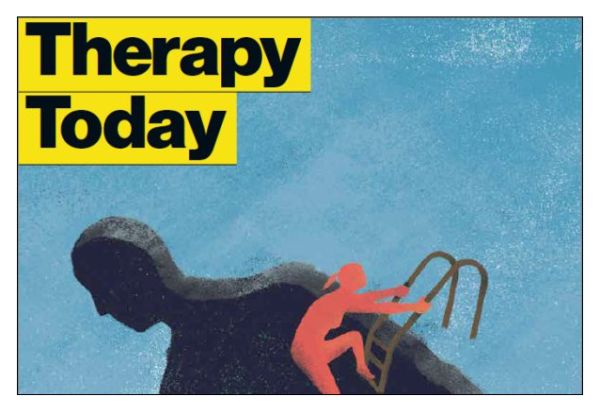Counselling, from counsellors’ point of view at least, has had to fight a long, hard battle to keep any kind of foothold in IAPT and remain a readily accessible option in NHS primary care.
In the early days reports abounded of counsellors losing their jobs and GPs protesting about the removal of their attached counselling service as the first and second waves of IAPT were rolled out across England and access to talking therapies was increasingly funnelled down to a single point of entry, and in many cases a single service hub.
CBT has historically been the only option treatment at Step 2 (low intensity) and the primary offer at Step 3 (high intensity) level. The numbers of counsellors working in IAPT has stabilised at roughly 20 per cent of the total workforce.
On the ground, however, the predominance of CBT within IAPT is less clear-cut. ‘There is huge variation across England,’ says Andy Hill, former Head of Research at BACP and a driving force behind the development of Counselling for Depression (CfD), the model of short-term, manualised counselling that is approved for use in IAPT services. ‘In some areas the IAPT service brought into its fold all the primary care counsellors; in others there’s no counselling at all. The numbers of services offering IPT, DIT and Counselling for Couples, which are also now approved for use by IAPT services, are still relatively small. So there’s something of a postcode lottery out there. As I see it, there’s been a failure in the central drive to ensure every service gives a genuine choice. It has been a constant battle.’
And choice, as research evidence shows, is an important factor in client engagement with therapy and, as a consequence, in improved outcomes.
The problem is that, while the IAPT recovery rates show that treatment is successful in less than 50 per cent of cases, the response has been to ratchet up the model of delivery, rather than explore what might be impeding better success, Andy argues. ‘There is an argument that the problem is that services aren’t faithfully following NICE guidelines and that, if they were, they’d get results. But I see a lack of willingness to explore whether more choice would make a difference and whether treatment failures would benefit from an alternative therapy. There’s also a lack of awareness that some people are better suited to particular therapies. We need patient pathways that actually match the type of therapy offered with patient preferences. That is something local services could be doing.
‘To me it seems ideological, rather than pragmatic,’ he says. ‘From the client’s point of view, counselling is acceptable and valued; it’s cost effective to the taxpayer; it represents real value for money. I’d like to see it valued as part of the IAPT service model.’
Nancy Rowland, Deputy Chief Executive at BACP, who has represented BACP on the national IAPT stakeholder reference group, is constantly challenging what she regards as an over-reliance on the NICE depression guidelines to dictate the therapies offered to clients, and the guidelines’ reliance on randomised controlled trial (RCT) evidence. She points out that IAPT is itself producing a wealth of practice-based evidence of effectiveness of the various therapies it offers through its minimum data set collection. ‘That is one of the strengths of the IAPT programme – that it has introduced a systematised monitoring of patient outcomes, so there is this huge bank of data about what happens to patients. We have data that indicate that counselling is as effective as CBT, and that it might be more effective, in that it achieves the same outcomes more quickly. But this kind of evidence is not admissible in NICE guidelines still, despite the attempts of BACP and the We Need to Talk Coalition to persuade NICE to change its stance,’ she says.
The expert reference group that is currently reviewing the NICE depression guidelines includes two counsellors, in addition to psychologists and psychiatrists. However, with no sign of change in NICE policy on admissible evidence, it seems unlikely that the revised guidelines will differ much; the RCT evidence isn’t there, yet. The BACP Research Foundation is funding an RCT at Sheffield University that is comparing outcomes from CBT and CfD in a real-life IAPT service, but RCTs take time and the study is a long way from producing meaningful data.
‘NICE guidelines don’t represent pure, objective science,’ says Andy Hill. ‘What they’ve done is create a first-past-the-post effect. It so happened that there was a lot of RCT evidence of CBT effectiveness; that doesn’t mean the other models don’t work, but if you have evidence that one type of therapy works, there’s very little incentive to spend money on exploring others.
‘NICE guidelines are just guidelines, they’re not gospel, and all guidelines should be tempered with professional knowledge, client preference, and ethnicity and socio-cultural factors. They have to be used in context. It also needs to be recognised that RCTs are not the only kind of knowledge. There is an argument that they don’t reflect actual clinical practice, precisely because they are so controlled.’
On the ground
As Andy Hill points out, what is happening on the ground is very varied. In some clinical commissioning groups (CCGs), counselling is available on a 50/50 basis; in some it is an integral part of the IAPT service, alongside CBT, with its own clinical governance structure. In some it has been outsourced to a third sector organisation but is still accessed through a single point of entry. In some it can be offered immediately; in others clients have to go through the stepped care process and have step 2 CBT before they can see a high intensity counsellor; in a very few it isn’t available at all.
In East Lancashire, the third sector Lancashire Women’s Centres has been commissioned by both East Lancashire and Blackburn with Darwen CCGs to provide IAPT therapies to their populations. Its practitioners are currently 50/50 counsellors and CBT therapists. Chief Executive Sarah Swindley is a person-centred counsellor by training but she has warmed to CBT. ‘I’ve seen some really good outcomes, particularly with women with historical abuse and trauma. Some seem to respond well to the more formulaic approach. CBT groupwork is also very effective with our clients. It can be reassuring to have a process that is more delineated. What I see is that the results are comparable and clients are getting the treatment that works for them.’
She is currently encouraging all their counsellors to attend CfD training as a top-up. ‘Commissioners can see that counselling is effective but they can’t commission it because they don’t have the backing from the NICE guidelines and the evidence to support it. Our accredited counsellors see this as teaching them to suck eggs, but because CfD is recommended by NICE, and humanistic counselling hasn’t been, CCGs’ hands are tied.’
She laughs at the suggestion that she is taking a risk by offering counselling, in that it may pull down her recovery rates. ‘The risks for us in this work are of people trying to kill themselves in the toilet,’ she says, ‘not whether we offer them counselling or CBT. We have a good relationship with our commissioners. We are very transparent about what we do. We do get clients with really complex needs who could be in Step 4 or even inpatient treatment, because we’re less likely to turn them away. That does impact on our recovery rates, because they are less likely to recover within IAPT timelines, but that is more about service planning. Some people will need a lifetime of support. But I am a dragon about this. I will question why someone is having counselling for so many sessions. They might do better from another approach. That is the issue.’
Partnership
Berkshire East is one of the IAPT services that sought to incorporate the counsellors currently working in primary care into its workforce when it opened for business in 2009, as a second wave IAPT service. East and West Berkshire IAPT services operate in tandem and together employ 27 counsellors and 50 Step 3 CBT therapists. The counsellors are encouraged (and paid) to do the CfD training in addition to their BACP accreditation. The counselling team has flourished, says Susan Scupham, Clinical Service Manager, and since 2013 has had its own clinical leads, rather than sharing locality leads with their CBT colleagues. They are paid on the same band rates: between band 6 and 8a, depending on their management responsibilities.
Many of the counsellors are still based in GP surgeries, but will also see people who aren’t registered with those GPs. ‘It’s about increasing access. We have counsellors in 80 locations across East and West Berkshire,’ says Susan. Clients are triaged by phone through a single point of entry. Those with depression or relationship issues can be signposted immediately to step 3 counselling; those with PTSD go straight to step 3 CBT; people with anxiety start with step 2 CBT. ‘It isn’t one size fits all. Some people do need to talk and Step 2 CBT just isn’t right for them,’ Susan says.
The outcomes demonstrate the effectiveness, she reports: the counsellors are consistently achieving slightly higher recovery rates than their CBT colleagues, and all are above the 50 per cent mark. ‘These are very experienced counsellors and they are getting fantastic results.’
Mutual respect
Oasis-Talk is a flourishing social enterprise that provides IAPT counselling, CBT and group workshops across Bristol and South Gloucestershire. It’s Chief Executive, Vicki Palmer, is a veteran of the counselling vs CBT battle; a psychotherapist herself, who formerly worked in the South Gloucestershire Primary Care Trust, she set up the service with colleagues back in 2012 largely because she was determined that counselling shouldn’t be driven out of NHS primary care.
In Bristol and South Gloucestershire the CCGs have used the Any Qualified Provider (AQP) system to create a patchwork of NHS and third sector providers to meet the range of client needs. Oasis-Talk receives 50 per cent of the referrals from both CCGs, but all referrals are triaged and signposted on by another provider, Avon and Wiltshire Mental Health Partnership NHS Trust (AWP) IAPT. Oasis-Talk’s high intensity therapists are divided equally between counsellors and CBT practitioners: ‘It’s something we have always done and I am very proud of that –we value CBT and counselling and the practitioners value each other. I think that is one of our greatest achievements and enabled counselling to be valued by the wider services,’ Vicki says.
It hasn’t been easy; she has had to work steadily and persistently to win over some of the other stakeholders – the commissioners, the GPs, her NHS counterparts. ‘I just keep telling them there is plenty evidence out there that counselling is effective, it’s just not in the form of trials that qualify for the NICE guidelines. I talk about “presentation and person” – I tell them about real patients, the people who come to us having had six sessions of CBT and are still not improving – the people who were referred for CBT when they could have had counselling to start with. I tell them it just isn’t cost-effective to do it that way.’ She has now managed to introduce a system of direct referral for clients who are deemed more suited to counselling.
‘If someone presents with anxiety, that’s a strong presentation for CBT, but if they present with relationship problems, bereavement, difficulties at work, counselling would be suitable. Someone with depression could go either way, depending on whether they are more cognitively minded or if they are more relational in their approach to life. You get the outcomes you want if you apply the right treatment for the person and for the presentation,’ she says.
Their outcomes are proof that it works: they are achieving recovery rates slightly above the average across all the AQP providers in the area.
But, while she is passionate about counselling, she is not partisan. ‘I have huge respect for CBT; I see lovely results. But it isn’t for everyone, and nor is counselling. To me, it’s very important that counselling is seen and heard and respected and that it is respectful of itself as a profession and of colleagues who practise other models. It makes no sense to assume counselling is best – it doesn’t suit everyone by any means, and it can really upset some people and even do them harm.’
She encourages her counsellors to do the CfD training not because they need the skills but because it explains the wider IAPT and NHS contexts in which they are working. ‘When they understand the context they can see how valuable their own contribution is but they can also see the value of their CBT colleagues. They need to know that so they can see when a client might benefit more from CBT, or another approach, and have the confidence to discuss this with their manager or supervisor and with the client as well. And that is what they are doing, which is very wonderful.’ IAPT is not the problem, Vicki says; the problem is the NICE guidelines.
What she’d like to see is more skilful contracting, whereby practitioners feel better able and confident to adjust the number of sessions to a client’s needs and presentation, rather than follow the limit set by their particular service, model or CCG, or the NICE guidelines. ‘For some clients, less can be more. We don’t want to create a nation dependent on talking therapies,’ she says.
Jessie Emilion, until recently Head of Counselling in Lewisham IAPT, tells a similar tale of taking a conscious decision to make counselling visible when she and her colleagues were taken into the IAPT service. The counsellors in Lewisham were a strong and established primary care psychological therapy service, based in local GP surgeries. ‘We wanted to be in IAPT because we were seeing other counselling services being decommissioned, and we felt it was better to be in it so we could have some influence,’ Jessie says. The counselling team of 13 currently takes approximately one third (2015 figures) of Lewisham IAPT’s step 3 referrals; the counsellors are mostly based in GP surgeries, working alongside their CBT colleagues. Their recovery rates are close to the national average at 44.3 per cent, although CBT is currently achieving 48.7 per cent; Jessie argues that counsellors tend to be referred clients with more complex issues.
But it shouldn’t be about competition, she says: ‘We work with our colleagues and discuss and think about our cases together, from the initial screening all the way through treatment. What’s important is that clients get the right treatment. It’s about working in partnership.’ Yes, they had to fight their corner and make sure they stayed visible, but ‘you can’t just fight change; you have to work strategically and proactively’.
Complementary service
Carolyn Couchman is more combative. She is Clinical Director of the third sector Bromley Community Counselling Service (BCCS), in south London. She has fought hard to keep going a flourishing GP-based counselling service that has been run alongside Bromley IAPT, with funding from a separate stream left over from GP fundholding days. Initially BCCS continued to take direct referrals from GPs. The problem was that this meant Bromley IAPT service wasn’t getting enough referrals to meet the national targets, so the CCG introduced a single point of access and assessment. Referrals to BCCS’s surgery-based counsellors dropped like a stone, from nearly 1,600 in 2013 to just 641 last year. ‘For a short time I had counsellors twiddling their thumbs in the GP surgeries while the single point of access was being established,’ Carolyn says.
BCCS now has 28 self-employed counsellors on one-year contracts on its books, mostly BACP-accredited or equivalent, and provides counselling in 75 per cent of Bromley’s 48 surgeries. Their outcomes are included in the overall Bromley IAPT data, and Carolyn says the overall recovery rates have improved since they came on board, from 31.5 per cent in 2014 to 53.2 per cent in March this year. ‘BCCS’s counsellors have been key contributors to that process. Some are achieving a 70 per cent recovery rate,’ she says.
She sees counselling and CBT as fundamentally different: ‘Like oil and water – they will mix, if you make them, but they are two very different things. To me, CBT is about symptom management; counsellors have a much broader range of understanding and interventions.’ What particularly frustrates her are the outcome measures used by IAPT to measure recovery. GAD and PHQ are measures of symptom change, she says: ‘I support the use of outcome measures in principle, but I prefer CORE, because it includes a more subjective assessment of changes in a client’s experience of their life and their relationships, not just their symptoms.’ While 91 per cent of her counsellors’ clients are showing improvement in their scores overall, only half of the counsellors are achieving the 50 per cent IAPT recovery rate. ‘They are good at getting people to feel better, as our feedback from clients shows, but they aren’t hitting the recovery targets, and that’s probably because the clients are coming to us with already high scores on PHQ9 and GAD7,’ Carolyn says.
She has recently been invited by Bromley CCG to propose a model for a bespoke primary care counselling service, either as part of the Bromley IAPT service or running alongside it. All her primary care counsellors have taken a CBT module as part of their training and so can both build on IAPT’s step 2 CBT and offer a wider step 3 intervention. That might be one model. But another possibility could be a complementary, longer-term counselling service for the clients who need a more holistic approach to address more complex emotional difficulties that might be blocking improvement. BCCS already operates a long-term community counselling service staffed by volunteers that offers low-cost, long-term psychotherapy. Says Carolyn: ‘A bespoke, longer-term counselling and psychotherapy service, which could include IAPT-compliant models of counselling, would allow Bromley IAPT to improve its recovery rates by shifting all the complex cases to us.’
What the statistics say
The Health and Social Care Information Centre (HSCIC) currently collects and reports the data on IAPT referrals, treatments and outcomes. According to the 2014/15 annual data, counselling currently comprises some 25 per cent of the high intensity (step 3) therapies delivered through IAPT; CBT around 63 per cent and the other NICE-approved therapies (IPT, DIT, Couples Counselling for Depression) collectively some 12 per cent. The actual numbers of clients receiving each therapy at step 3 are 76,259, 189,162 and 35,404 respectively.
Overall, 10 per cent (18,163) of people who completed a course of IAPT treatment in the year received step 3 counselling, 20 per cent (36,106) had step 3 CBT, and four per cent (7,416) had one of the other high intensity therapies (the remaining bulk of referrals received Step 2 self-help, guided self-help or psycho-educational or employment support).
For clients with depression, counselling and CBT achieved the same overall average recovery rate of 45 per cent, but counselling achieved recovery in 5.2 sessions, on average, compared with 5.9 for CBT. So counselling achieves the same outcomes as CBT, but slightly faster.
The majority of CCGs offer a choice of at least two types of therapy (96%); 76 per cent offer at least three, and 48 per cent offer at least four. All CCGs (211) offer CBT, 180 offer counselling, 141 offer IPT, 95 offer Couples Counselling and 77 offer DIT. Recovery and ‘reliable improvement’ rates were marginally highest in CCGs that offered a choice of three types of therapy, and deterioration rates highest in those offering just one.
Catherine Jackson is acting editor of Therapy Today
More from Therapy Today

Can software ever replace the therapist?
Open article: As the NHS seeks to expand access to talking therapies within limited resources, digital technology could provide the solution, writes Bina Convey. Therapy Today, June 2016

The true cost of managed care
Free article: Catherine Jackson reports from a recent conference on the future of psychological therapy. Therapy Today, May 2016

Co-location or collusion
Free article: How ethical are the Government’s proposals for closer working between IAPT services and Jobcentre Plus? Catherine Jackson reports. Therapy Today, April 2016
